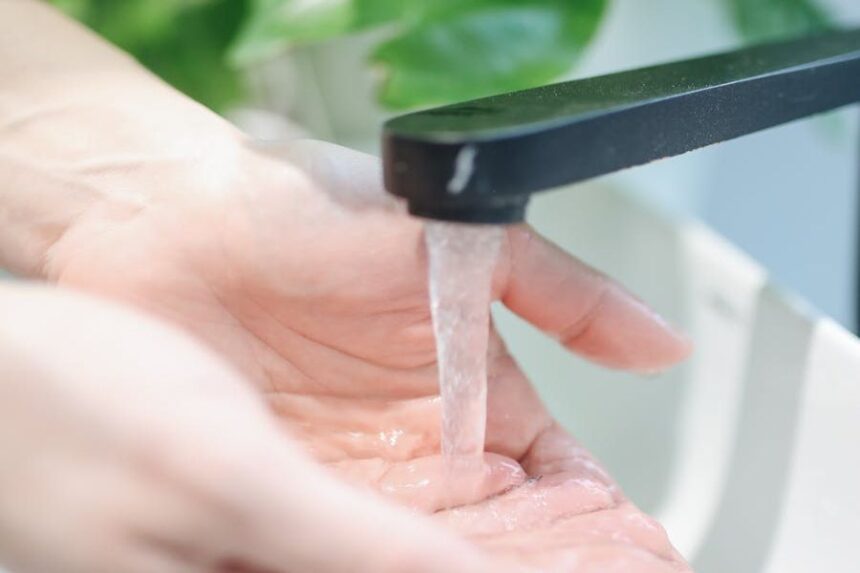Activities of daily living (ADLs) help children develop independence, a sense of responsibility, and self-care skills. Learning ADLs empowers your children to care for themselves, fostering a culture of self-reliance and confidence. Basic tasks, including personal hygiene, dressing, and eating, prepare children for future responsibilities and challenges. Most tasks engage your mind and body, which helps enhance gross and fine motor skills.
Successful completion of activities of daily living reduces anxiety and boosts self-esteem, offering kids a sense of accomplishment. Kids want to eat, dress, bathe, and move around, and these activities make them realizable. The following are six activities of daily living that help kids live more independently and comfortably.
1. Hand Washing
Everyday bathroom engagements, work, and eating expose the hands to dirt and germs. Kids want to wash their hands regularly to prevent the spread of illnesses and infections. Hand-washing is one of the leading activities of daily living examples essential for personal hygiene, health maintenance, and self-care. It promotes general cleanliness and maintains a healthy living environment while fostering confidence and self-reliance in a kid’s care routines.
Hand-washing works with other ADLs, such as eating, toileting, and bathing, to encourage cleanliness and hygiene. The process involves wetting hands with soap and water and rubbing them together. Teach kids to scrub all parts of their hands, from under the nails and between the fingers. Ensure they rinse their hands with running water and dry them with a clean towel.
2. Spoon Holding
Dieting and proper feeding are inseparable aspects of human life. Eating is a skill that children learn as they grow. Kids need to hold the spoon handle properly for a more comfortable grip. The spoon should always sit between the kid’s fingers and the thumb.
Proper spoon-holding improves grip coordination and strength while improving hand-eye coordination. Mastering spoon-holding makes a kid self-sufficient in eating, which enhances autonomy and confidence. Kids can feed themselves comfortably without needing external assistance. That encourages healthier eating habits and better nutrition for kids.
3. Mobility
Younger children learning to stand and those with physical disabilities experience mobility limitations, yet they want to live without harm within their environment. These kids want to manage their movements for a more self-sufficient and independent lifestyle. Mobility enables children to play, build a social life, and engage in fun activities. Also, regular movement supports a child’s physical health, helping maintain joint flexibility, cardiovascular health, and muscle strength.
Mobility exercises include walking, where the child learns to walk short distances within their homes or around the community. They will learn to move from one place to another. The exercise entails getting in and out of vehicles, beds, and chairs. Kids can navigate stairs with additional assistive or support devices and maintain balance when walking and standing.
4. Dressing
As kids grow, they seek more independence and want to experience control over their daily decisions and self-expression. Dressing your kid makes them feel less self-sufficient and more dependent. For that reason, most kids will attempt to dress themselves from a tender age. Dressing independently helps boost a kid’s self-esteem and personal autonomy. It allows them to express themselves while boosting physical comfort and self-independence.
Train your kids on the importance of proper dressing and choosing the best clothing for every occasion, weather, and lifestyle. You want to help them perfect the art of cloth layering for optimal warmth and comfort. Also, train your kids to put shoes/socks on and off for optimal comfort and mobility.
5. Brushing Teeth
Children can keep their teeth clean through brushing and other oral care routines. Brushing is a personal hygiene practice requiring mental and physical concentration, skills your kid can learn from you, teachers, and their caregivers. Brushing teeth is an integral oral health practice for preventing bad breath, cavities, and gum disease. It promotes a sense of self-respect and personal hygiene, which is crucial for mental health.
Brushing maintains a fresh and clean mouth, leading to more confidence and social interactions for kids. Also, performing the task promotes self-care and personal independence, suitable for mental well-being.
6. Toileting
As your children learn to visit the washroom, you want to teach them toileting skills. These skills help optimize their hygiene and independence. Encourage your kids to listen to their body’s signals and have a consistent schedule for bathroom breaks. Invest in toilet customization by installing a potty seat or stool when possible.
Successful toileting attempts help your kids build confidence, gain autonomy, and learn to care for themselves. Toilet-trained children participate more in social activities like school and playdates, where diapers are inapplicable. Furthermore, learning toileting practices promote a kid’s good hygiene, reducing infection and related health issues. Kids who can manage their toileting needs have no bodily function anxieties, which enables them to develop a positive relationship with their bodies.
Wrapping Up
Activities of daily living have become an integral aspect of everyday life for personal care. Kids want to learn these activities to make their everyday lives more independent and comfortable. Such activities include bathing, brushing, dressing, hand-washing, and spoon-holding. Mobility exercises prepare kids to live more independently and comfortably in different environments.




